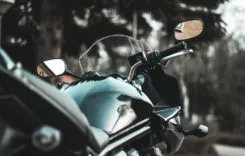Rogue, A Freedom Fighter | Government Extortion and Helmet Laws
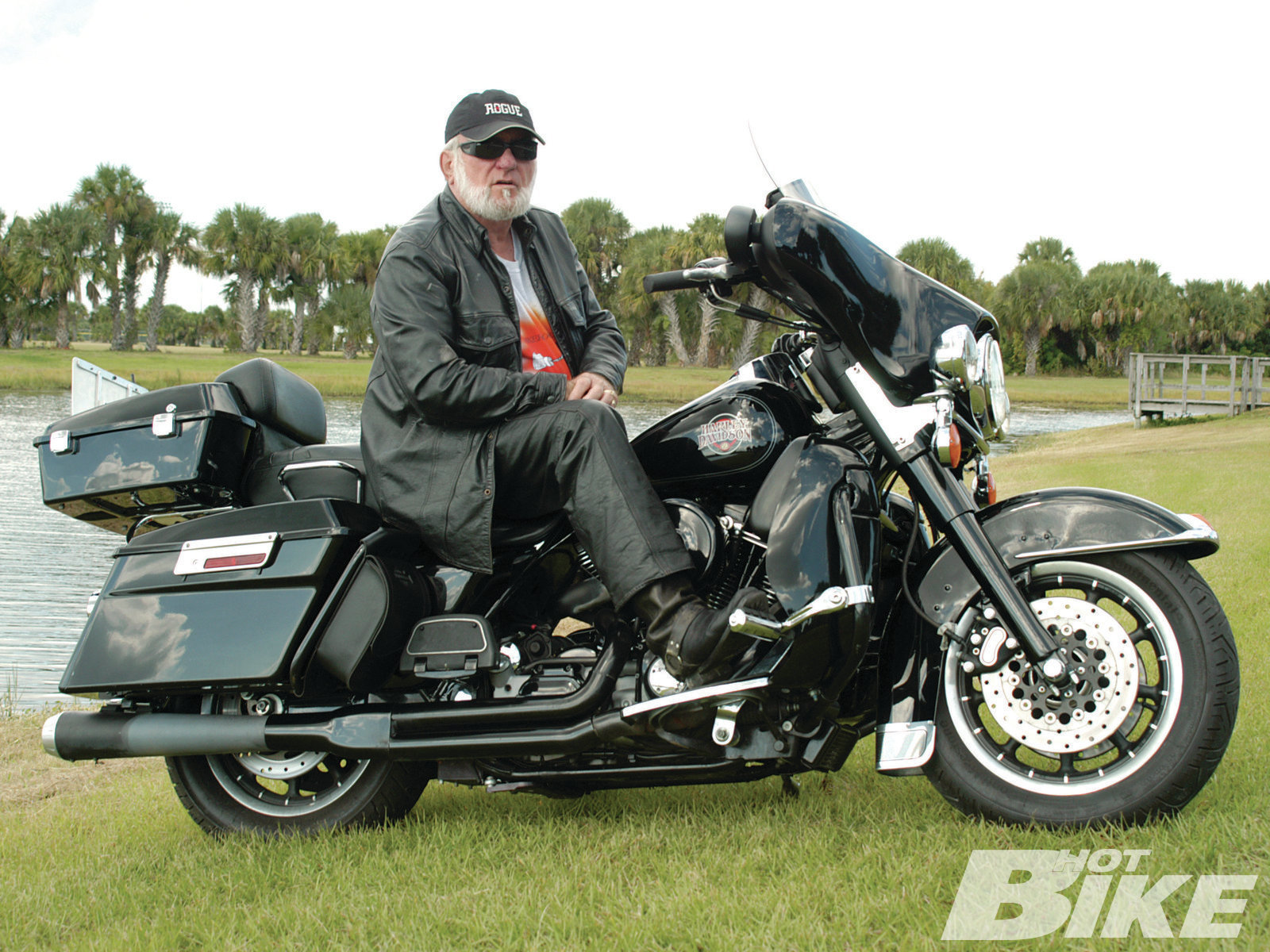
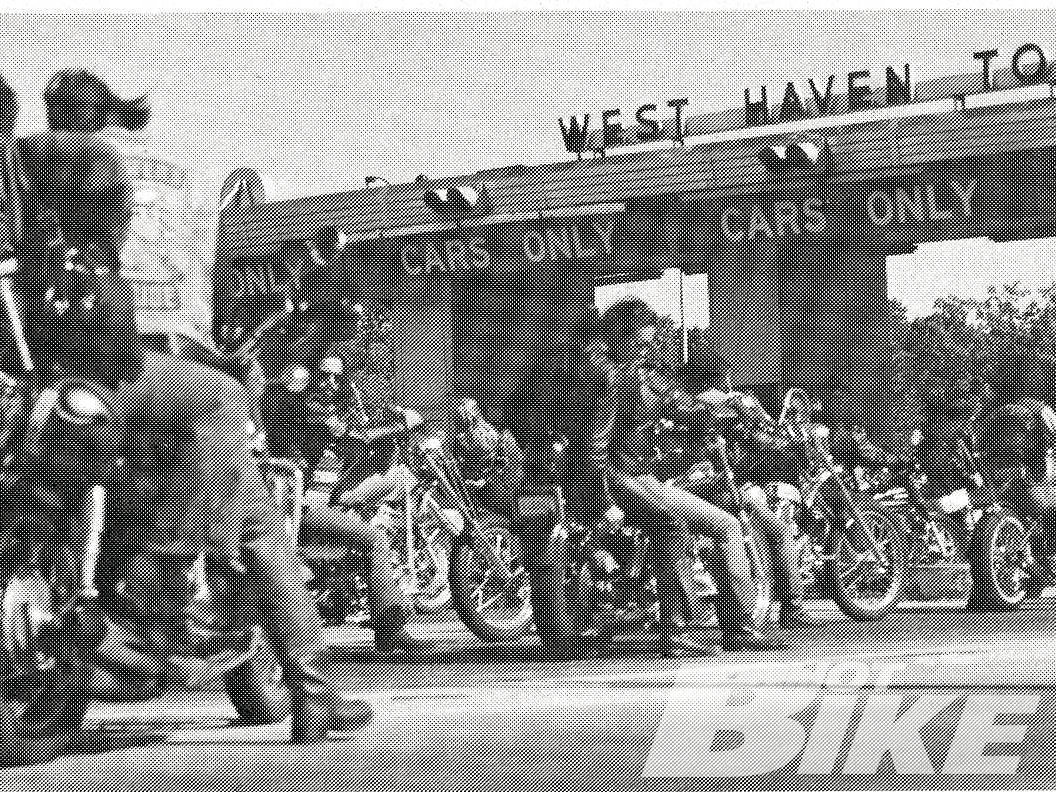
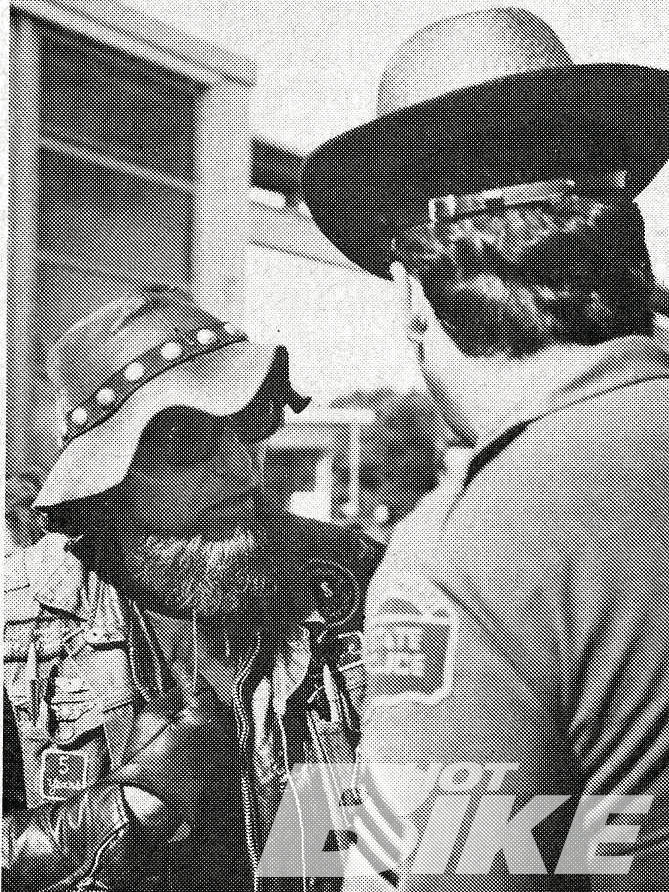
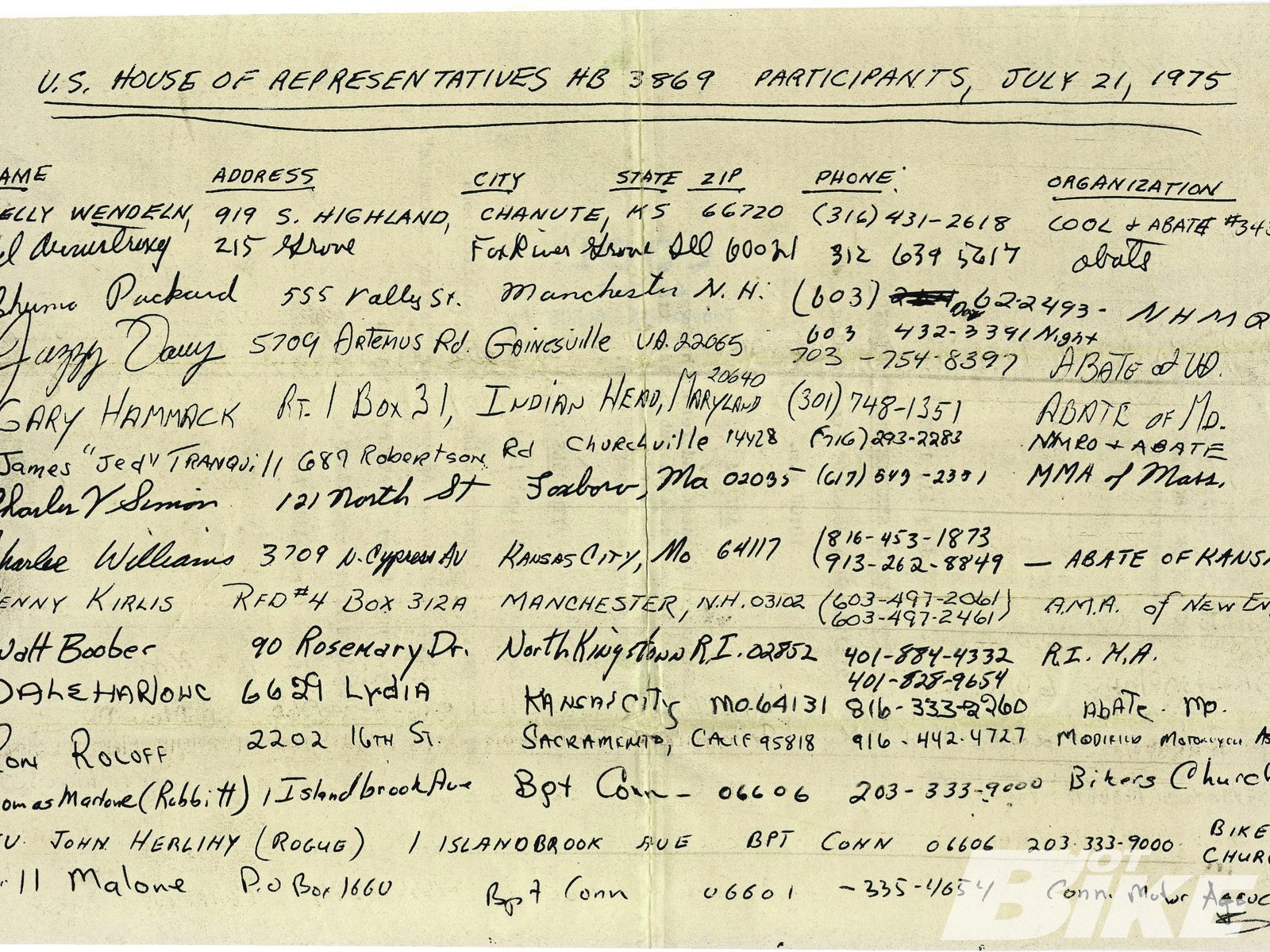
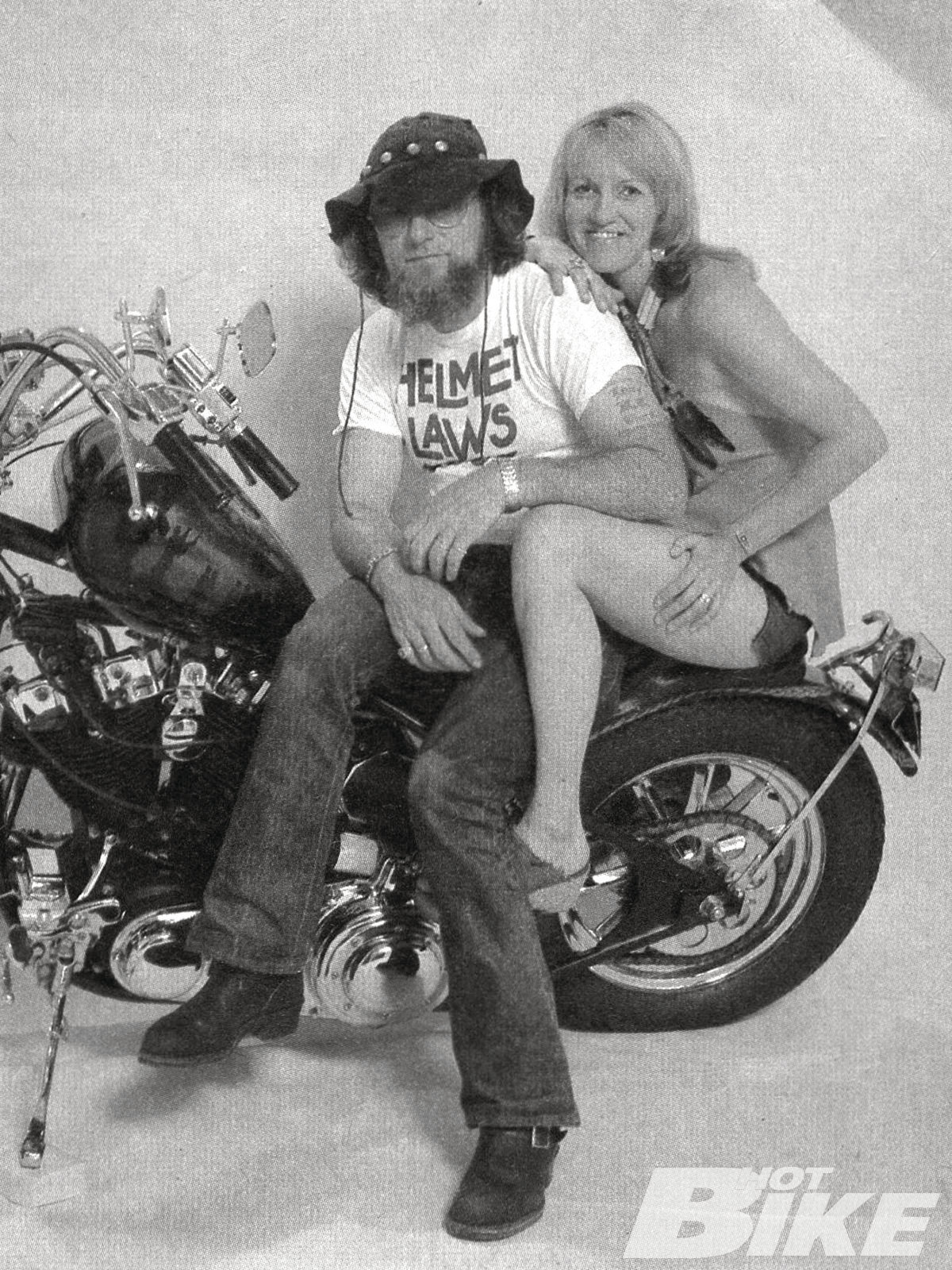
_
“I had one of my people pick up the necessary paperwork and deliver it just in time as I was called back to the Senate.”
_
Here’s one that will peel the chrome off your jockey shift. This story jabs at the heart of biker history. I’ve known Rogue since 1972. You may be surprised to find him sitting next to you at the Last Resort Bar in Daytona. In many ways, he’s just another 74-year-old biker who joined the Huns MC in the ’60s, spent time in the Air Force, and was a mechanic. Yet, if you scratch past the scraggly beard you’ll discover hard-fighting Rogue who became the international president of the Huns, the leader of the Connecticut Motorcycle Association, and a life-long fighter for biker freedom for 40 years. We wouldn’t be riding as free as we are now without his significant efforts.
Many guys on the streets believe that the AMA is our bastion against losing freedom to ride. Rogue and some of his brothers fought for bikers’ rights years before the AMA had a legislative branch. Then, for years, we fought the AMA and the government, since the AMA didn’t side with bikers.
This story takes you back to the early days of choppers on the East Coast and the men who fought the man daily, fought the government, and fought society to be free. They were tough during rugged times. Keep in mind that this is just one example of thousands in this man’s life. I’ll let it flow, primarily, in his words:
I was international president of the Huns MC with the Mother Chapter in Bridgeport, Connecticut. The club actively fought the Mandatory Helmet Law through an organization named the Connecticut Motorcycle Association (CMA).
We really turned up the heat and threw major helmet protests once a month. Clubs and free riders from all over became involved and the protests grew. At the time the Public Burden Theory wasn’t used. As protests grew, the notion that bikers had no use for helmet laws grew and state governments repealed the laws. Except, there was a national threat. A law was passed that threatened financial sanctions against states that wouldn’t pass helmet laws. It was blackmail.
I wrote about organizing protests and eventually traveled to other states like New York, Pennsylvania, Massachusetts, and even Georgia to help organizations build, coordinate protests, and deal with state governments. During one protest in Connecticut, the groups left the capitol in Hartford and headed north and south on Interstate 95. The third group took Interstate 84.
Of course, New England was well known for all the tolls they liked to collect. Our pack lined up at the tollbooth, with leaders in the front, holding $100 bills. The plan was for the first bikes to hit the toll station, pay, and let the rest through. The tollbooth attendants came unglued and wanted each bike to pay separately. It wasn’t long before the interstates were shut down and no traffic was moving on them in or out of Connecticut.
During this scene, bikers who drove trucks blocked the back of the packs so motorists wouldn’t hit bikers. They used more cages to block the other booths. One of the car-driving biker women with a couple of kids, threw a kill switch in her car at another booth. Of course, bikers being gentlemen, offered to assist her “get it fixed,” so the hood was popped open. The car would crank but wouldn’t start. The toll people wanted the bikers to push the car, but they refused. Tow trucks and state police were called. It took them a while to arrive meanwhile nothing moved anywhere. We had the whole interstate system jammed. Cops and press came out of the woodwork.
One of the state cops pulled up like gangbusters and started to yank a riot shotgun out of his trunk, when the sergeant slammed the trunk on his arms and yelled, “Are you crazy? The biker broads have more fire power than we do, and no telling what the guys have.”
My ol’ lady, Beep, was standing there and the cop asked her if she was carrying, and of course, she was. She had a 9mm Browning in a shoulder rig and a permit to carry it. They made her unload it and gave it right back after she threatened to sue their asses if they didn’t return it. They told her not to reload until she left.
Every state trooper and most of the cops knew who I was and hunted me down. There was some talk about arresting people, and I told them, “Arrest us all or no one.” They threatened to tow bikes, but our women again had licenses, and we had a couple of flat bed trucks with plenty of tie downs.
The cops tried to take our photographer Sandy’s film. Sandy handed it to Beep and she put it down the front of her pants. The cops knew better than go for it, and told her that if she didn’t give it up they were going to arrest her. She agreed and said she would slip into the van and retrieve it. As she slid the door open my Belgium Shepherd, Jimbo, greeted the cops, and they did not want anything to do with our attack dog. Beep got in the van and soon returned with a roll of film. She had switched it in the van and gave them a blank roll.
A couple of hours later we made our point and rode out, but the traffic was backed up for 50 miles in every direction. We were out partying hours later, and the streets and highways were still jammed.
A few days later I got a phone call from the governor, Ella Grosso. She wanted a meeting with me. I rode to Hartford with a few of my brothers, and a handful of state cops were there to meet me. They started off threatening to throw me in jail. Been there, done that. “Do you really want to make me the poster boy for civil rights?” I told her if I went to jail one of my radical, more violent, brothers would take over.
The end result of our meeting was, if we could get Washington to remove the blackmail threat of withholding highway funds, she would sign our helmet repeal. The following year, December of 1975, the United States Senate had a hearing regarding the Cranston-Helms amendment to an appropriations bill that would prevent the federal government from withholding money to states that did not pass mandatory helmet laws.
There were a lot of people testifying before the Senate and I was one of them. I stated that I was from Connecticut, the Constitution State, and I wanted to know when the government of the United States condoned blackmail. That upset the Senate and they told me I had better explain. I told them that my governor, Ella Grosso, did not want to sign a helmet law repeal, even though it had passed the House and Senate in Connecticut, because the federal government threatened to withhold federal highway funds. I told them that I possessed this statement in writing. At the time, I was Reverend Herlihy (I was there representing Bikers Church). They demanded to see this document. I had 24 hours to deliver it to the Capitol.
I called some of my people and the governor. We had to move fast. Her aide tried to give me the run-around and I threatened her job. I spoke directly to Ella, and she was hesitant. I reminded her of our conversation and that I was in Washington making sure the state of Connecticut would not lose funds. She had no excuse not to sign the repeal. I also promised her that if she didn’t put it in writing, she hadn’t seen anything like the protests to come. She had better put the National Guard on standby. Hey, sometimes you just got to grab the bull by the horns and say, “Fuck it.”
I had one of my people pick up the necessary paperwork and deliver it just in time, as I was called back to the Senate. I was fired up and on a roll, when the speaker told me, “Reverend Herlihy, you can stop beating a dead horse.” I didn’t stop until he said, “You won it’s over.” The national blackmail threat was history and the helmet law repealed in Connecticut. HB



